Webcomics
Part of a series on The Internet. [View Related Entries]
[View Related Sub-entries]

| Navigation |
| About • Online History • Key Concepts • Criticism • Notable Comics • Related Memes • Search Interest • External References • Recent Images • Recent Videos |
About
Webcomics are comics that are firstly and primarily posted on an online site, and that are serial in nature. Webcomics are considered to be a different section of comics than traditionally created comics such as graphic novels and comic books because they are often created digitally and make use of the "infinite canvas"[1], a phrase coined by Scott McCloud in his book Reinventing Comics[2]. "Infinite canvas" deals with the unlimited space a creator has because of screen size, scrolling, and zoom capabilities. Animations, 3D art, and other techniques based on digital technology are used in webcomics that aren't possible in physical print comics, and a wide number of genres are covered. It should be noted that webcomics use a website as their first form of publication, which does not include traditional comics republished on a website.
Online History
Early Instances
The first webcomic was "Witches and Stitches" by Eric Millikin[3], posted on Compuserve[4] in 1985. The comic dealt with the Satanic ideas that Millikin developed while working in a coronary.
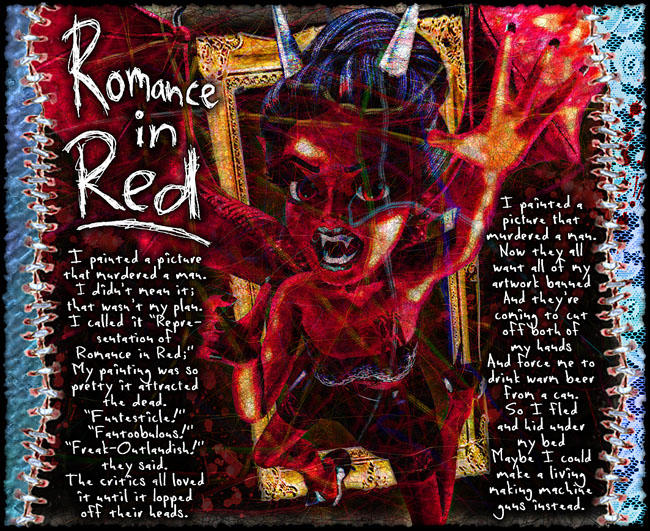
Because of the controversial nature of the comic due to its gore, nudity, and satanic content, the comic is now defunct from threat of lawsuit, though it ran for several years.
"Witches and Stitches" was followed by other comics that were posted on Compuserve, Quatum Link, FTP, and other connections to the web, the first being "T.H.E. Fox"[13], a Furry webcomic written and drawn by Joe Ekaitis.

"T.H.E. Fox" was published on several several servers, the most notable being Compuserve, as well as the World Wide Web[14] later on, and ran from 1986 to 1998, when updates became rarer and rarer, and eventually stopped all together.
Comic Collections
In the mid-1990s, websites devoted to housing many different webcomics, often referred to as webcomic portals, began to pop-up, including popular site Keenspot[5], which was founded in 2000 by Chris Crosby[15], the cartoonist behind "Superosity"; his mother; cartoonist Darren Bleuel, the creator of "Nukees"[16]; and Nathan Stone. Keenspot was preceded by a smaller portal called "Big Panda", the collapse of which led to Keenspot's creation.

Within a year, Keenspot was hosting the work of 47 cartoonists, and had 23 million page views monthly. In 2010, Keenspot altered itself into a publishing company, and stopped accepting new webcomics into its collection.
Since Keenspot's conception, hosting sites and other portals have begun to appear, including Drunk Duck[6] and Comic Genesis[7].
Key Concepts
Infinite Canvas

"Infinite canvas"[23] is a concept first put forward by comic writer Scott McCloud in his book "Reinventing Comics." Infinite canvas is the concept that, because of theoretically infinite memory space, scrolling capabilities, screen sizes, and zoom functions, creation of comic strips or pages is not limited to the traditional size requirements present in physical publications. Also, because of these aspects, it no longer becomes necessary for panels to follow the traditional left-to-right and top-to-bottom path, and can be created in any direction the author chooses (although the path must be made clear; otherwise readers who are used to the traditional path will become confused).
Because of the infinite canvas, webcomic artists therefore have much more latitude to experiment with length and layout than any traditional comics writer ever could. However, as the webcomic Housepets! points out[24], making full use of the infinite canvas means that the resulting comics would be impossible to include in an anthology, which could seriously harm the creator financially.
Title and Alt Text and Voties

Alt text (short for "alternate text") also known as an "alt attribute" is a type of HTML text encoding which allows the uploader to include a small bit of text along with the image which pops up when the mouse hovers over it. In webcomics, the alt text is often used to include a second punch line or some other witty addition.[25]

A votey (or "vote incentive") is similar to alt text in that it is a form of additional material separated from the main comic. A votey differs form alt text, however, in that it is explicitly used as a reward for users who vote for the comic on webcomic ranking sites like TopWebComics.com.[26] Voties can, like alt text, be a simple image containing an additional punchline – such as those used by Saturday Morning Breakfast Cereal.[27] Some comics, however, have used their voties to include whole alternate comics, or even alternate story-lines. One notable instance of the latter being the webcomic Slightly Damned[28], which runs an alternate comic called "The Legend of Buwaro: The Soprano of Time" (a parody of "The Legend of Zelda: Ocarina of Time") as a regularly updated votey.



Criticism
Because of the isolated nature of webcomics as a subculture, they have been seen by some as low-brow and unworthy of any notability in the public eye. For example, Wikipedia has taken a very conservative stance on webcomics. Many popular webcomics, such as "El Goonish Shive"[18], have had their entries deleted from the encyclopedia. In 2007 the creators of "Schlock Mercenary"[29] protested Wikipedia's policy with a call for their fans to abstain from their annual donation drive, until the policy is changed[30][31] – a campaign that was later picked up by Wikinews.[32] As of 2012, however, the policy seems to have gone unchanged.
Awards and Recognition
Despite criticism and a lack of offline presence, webcomics have received an increasing number of accolades and awards. There are several award-granting organizations dedicated to webcomics, such as the Web Cartoonists' Choice Awards[19] and the Ursa Major Awards[20]. One particularly notable webcomic in this regard is Girl Genius[21], which as of 2012 has, among other honours, received three Hugo Awards and has been nominated for two Eisner Awards[22] – making it one of the most frequently honoured comics on the internet. It should be noted, however, that the Hugo Awards where technically for the annual print anthologies, and not the online version per se.
Notable Comics
Many comics have grown to have a large scale fanbase, and some are even so successful that their creators make enough profit to live off of them. (Note: this list is not meant to be exhaustive, but is simply here for illustrative purposes.)
MS Paint Adventures

"MS Paint Adventures"[8] is a series of comics done by Andrew Hussie, most of which are created completely in Adobe Photoshop, the exceptions being "Jailbreak", which was drawn in MS Paint, and "Homestuck", the most recent comic, which has pages that are done in Adobe Flash. Ms Paint Adventures are set up in a text-based adventure game style, where the link to progress through the comic is depicted as the text the player would enter in-game. The site has a significant fanbase, with the biggest portion being for Homestuck, which currently has 4000+ pages. When considered as a single webcomic, MS Paint Adventures is the longest running webcomic online, with 6000+ pages between the four series. Each comic has a different plotline and features different characters. "Homestuck", for example, is a running plot about four children who battle through a video game to save a world called "Skaia" from destruction.
Penny Arcade

"Penny Arcade"[9], created by Jerry Holkins and Mike Krahulik, is one of the first, most popular, and longest running gamer comics online, and is one of the first comics to provide the creators enough profit to live off of. "Penny Arcade" is centered around Gabe and Tycho, cartoon representations of Holkins and Krahulik, who constantly make commentary on games, gamers, and gaming culture. While the comic doesn't feature a continuous plot, character consistencies are present.
xkcd

"xkcd"[10] is a webcomic by Randall Munroe that often makes science or math jokes, but also deals with pop culture from time to time. It was started in 2003, and has been running since. It is often considered the most popular webcomic to date. The meme Roller Coaster Chess originated from this comic (see article for full details).
Cyanide and Happiness

"Cyanide and Happiness"[11] is a stick figure comic that was started by Kris Wilson when he was 16, and eventually grew to be written and drawn by Kris, Matt Melvin, Rob DenBleyker and Dave McElfatrick, and hosted on their new site, explosm.net, in 2004. It features a wide variety of jokes in its strips, including non sequitur humor, puns, and general commentary on culture.
Ctrl+Alt+Del

"Ctrl+Alt+Del"[12] is a gamer comic by Tim Buckley that was started in 2004. Even though it has a strong fanbase, it has also developed a large hatebase for its wordy joke progression, general condescending attitude, and the event that led to the CADbortion / Ctrl+Alt+Del parodies meme (see article for full details).
TwoKinds

"TwoKinds"[17] (also written as "2Kinds") is a fantasy manga, hosted by Keenspot, that started in 2003, and is drawn and written by Tom Fischbach. It is a narrative manga that deals with the adventures of Trace, a man who lost his memory in an intense battle, as he relearns his past. The comic's story deals with the racial tensions between humans and keidran, a race of sentient bipedal feline-based creatures, though other species of animal give influence. Trace also develops a romantic relationship with Flora, a tiger-like keidran. Because of its use of anthropomorphic characters, the comic is highly popular in the furry fandom. However, because of the comic's tendency to display implicit sexual circumstances, as well as the abstracted nudity of female keidran in many situations, the comic has become quite controversial, being representative to many of the more extreme practices of the fandom.
Related Memes
Due to its long history and steadily growing presence on the Internet, many webcomics have given birth to a variety of well-known Internet memes, such as the CADbortion / Ctrl+Alt+Del parodies (Loss), "It's Goofy Time!", and "Ooh Mister X", as well as crowdsourced webcomic series like Rage Comics.
Search Interest
External References
[1] Wikipedia – Infinite Canvas
[2] Wikipedia – Reinventing Comics
[4] Wikipedia – Compuserve
[13] Wikipedia – T.H.E. Fox
[14] Wikipedia – World Wide Web
[15] Wikipedia – Chris Crosby
[16] Wikipedia – Nukees (page unavailable)
[19] The Web Cartoonists' Choice Awards – Main site
[20] The Ursa Major Awards – Main site
[22] Wikipedia – Awards and nominations for Girl Genius
[23] Wikipedia – Infinite Canvas
[24] Housepets! (via Wayback Machine) – An example of Infinite Canvas in use
[27] Saturday Morning Breakfast Cereal – The votey is reached by hovering the mouse over the red circle just below the comic.
[28] Slightly Damned – The votey is reached by clicking on the "Vote TWC" button in the right-hand column.
[29] Schlock Mercenary – Main site
[31] Wikiwatch: Stirring The Pot
[32] Wikimedia fundraiser highlights webcomic community's frustration with Wikipedia guidelines
Recent Videos 9 total
Recent Images 1,952 total
Share Pin
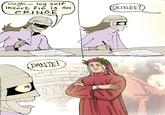
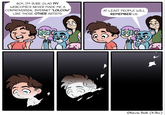

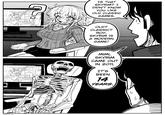
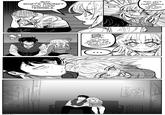
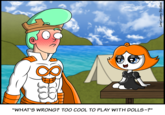









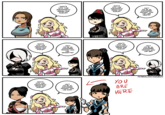
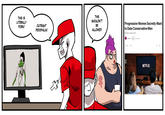
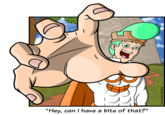
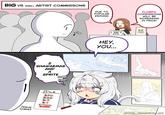

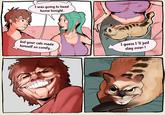

Comments ( 65 )
Sorry, but you must activate your account to post a comment.
Please check your email for your activation code.